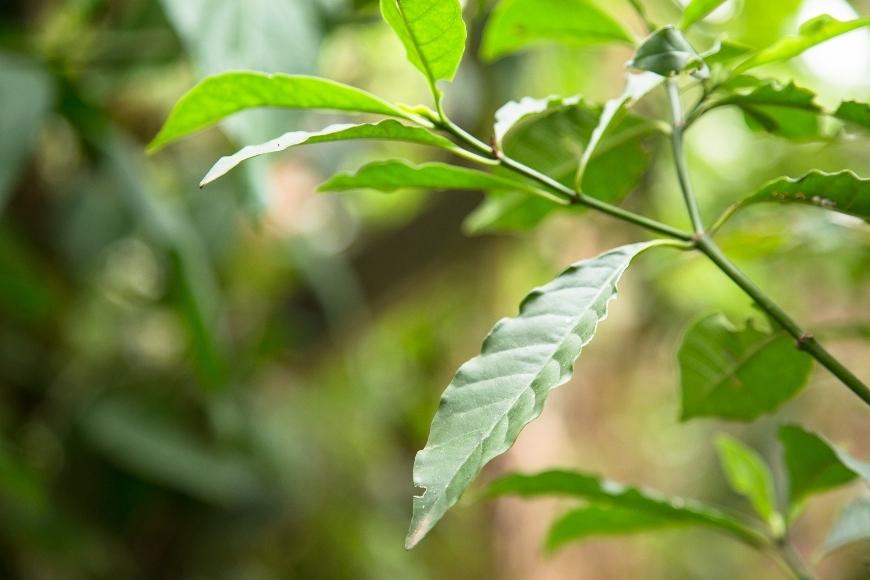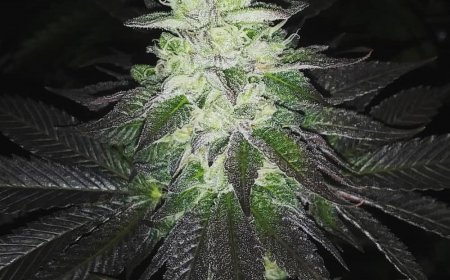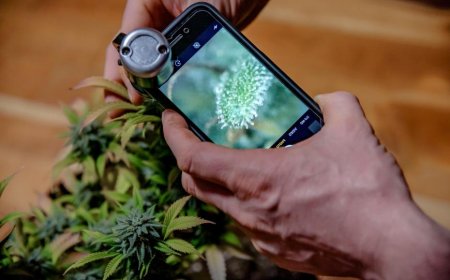DMT: What You Need to Know
Discover the bottom line on DMT, a hallucinogenic tryptamine drug. Learn about its legality, preparation, benefits and more in "DMT: What You Need to Know.

DMT: What You Need to Know is a topic that has piqued the interest of many, especially among young adults who are exploring psychedelic drugs. This hallucinogenic tryptamine offers an intense experience, but there's more to it than a casual look would reveal.
The bottom line DMT is that it's not just about tripping; legality issues, preparation methods, potential benefits and alternatives all come into play. It’s important to understand these aspects before diving in headfirst.
Furthermore, risks such as serotonin syndrome or hallucinogen persisting perception disorder can occur with higher doses or when you don’t combine DMT properly with other substances. Especially if you have a heart condition or are taking antidepressants.
This blog post aims to shed light on all these facets of DMT: What You Need to Know for those seeking comprehensive information on this controlled substance.
Table of Contents:
- DMT: The Psychedelic Compound
- DMT Legality
- Preparing and Consuming DMT
- DMT: Potential Benefits and Risks
- Exploring Altered States of Consciousness Without DMT
- FAQs in Relation to Dmt: What You Need to Know
- Conclusion
DMT: The Psychedelic Compound
DMT, or Dimethyltryptamine, is a psychoactive compound with a molecular structure akin to serotonin - the neurotransmitter responsible for regulating mood, cognition and perception. Indigenous tribes in South America have used it for centuries during spiritual rituals and ceremonies.

The chemical structure of DMT is similar to serotonin, a neurotransmitter that regulates mood, cognition, and perception. DMT's ability to bind with serotonin receptors in the brain allows it to produce its characteristic hallucinogenic effects. It is classed as a hallucinogenic tryptamine drug.
Users report intense and life-changing experiences, including vivid visual hallucinations and deep emotional introspection. The outcomes of using DMT can be either joyous or horrifying, depending on the user's mental state.
A Brief History
DMT was historically consumed as part of Ayahuasca brews by Amazonian tribes for religious or healing purposes. The Western world became aware of it in 1955 when it was synthesized by British chemist Richard Manske.
Different Forms Of Consumption
DMT can be ingested orally, smoked, or vaporized, each method having different onset times and durations. Smoking or vaporizing pure crystalline form results in immediate onset but lasts only about 30 minutes. Consuming Ayahuasca takes longer to kick-in but lasts several hours due to other plant compounds slowing down metabolism.
It's worth noting that oral consumption without MAO inhibitors has no effect because enzymes present in the stomach break it down before reaching the bloodstream. Research shows smoking/vaporizing is the most common method among recreational users due to their short duration, allowing for better control over the experience compared to long-lasting Ayahuasca sessions requiring more commitment both physically and mentally.
DMT Legality
The legality of DMT differs significantly between nations. In the US, for instance, DMT is classified as a Schedule I controlled substance, meaning it's illegal to manufacture, distribute or possess. Penalties for possession can lead to hefty fines or imprisonment.
Legal Status in Other Countries
Some South American countries have more lenient laws due to traditional and religious use of plants containing DMT. For example, in Brazil certain churches are legally allowed to brew ayahuasca - a potent psychedelic tea that contains DMT - for religious ceremonies.
Legal Alternatives
If you're looking to explore altered states of consciousness in a legally compliant way, meditation practices such as mindfulness can provide comparable experiences.
Meditation Practices
Mindfulness meditation practices can help achieve deep levels of relaxation and self-awareness which might be compared with mild psychedelic experiences.
Breathwork Techniques
Certain breathing exercises known as holotropic breathwork were developed by psychiatrists specifically as an alternative method for achieving altered states without drugs. These methods involve rapid breathing patterns which stimulate changes in mental state akin to those experienced during a mild trip.
Stay Safe
Remember, while these alternatives may not carry legal risks, they should still be approached responsibly under guidance from trained professionals.
Please note: This article does not endorse illegal activities nor encourage drug use; it merely provides information about various aspects related to DMT.
Preparing and Consuming DMT
Before ingesting DMT, it is imperative to understand the proper preparation and consumption methods for this powerful psychedelic. Approaching DMT use with care is essential, as it can bring about drastic changes in one's mental and physical state.
The Extraction Process
Extracting DMT requires the use of certain chemicals such as lye and naphtha, which should be handled with care; additionally, Mimosa hostilis root bark is necessary for the process. You'll also need Mimosa hostilis root bark, the primary natural source of DMT.
Safety First
When preparing DMT for consumption, always prioritize safety. Wear protective gear like gloves and goggles during the extraction process to prevent chemical burns or eye damage. Work in an area with plenty of air flow, far from sources of ignition due to the combustible properties of some chemicals used for extraction.
Methods of Consumption
The most common way to consume extracted DMT is by smoking or vaporizing it in small doses using a pipe or vaporizer designed for freebase compounds.
Vaporization Techniques:
- Pipe: The simplest way is through a glass pipe similar to those used for other substances like cannabis but without any added plant material.
- Vaporizer: Another effective method involves using specialized vaporizers designed specifically for volatile substances like DMT.
- E-Cigarette: Some users prefer e-cigarettes because they allow precise control over temperature settings ensuring efficient delivery without burning the compound.
Remember, exploring consciousness-altering experiences can be intriguing, but preparation plays an integral role in determining your overall experience with these substances - especially something as potent as DMT. Always take time researching best practices before diving headfirst into uncharted territories.
DMT: Potential Benefits and Risks
DMT, a naturally occurring psychedelic drug, has been used in spiritual practices for centuries. While it remains a controlled substance in many parts of the world, research into its therapeutic potential continues. Here are some potential benefits and risks associated with DMT:
Potential Therapeutic Benefits
Research indicates that DMT could be advantageous for mental health. A 2023 investigation discovered that those who had taken ayahuasca (which contains DMT) reported improved well-being and satisfaction with life. They also showed reductions in depression and stress scores. However, more extensive clinical trials are needed to fully understand these effects.
Cognitive Enhancement
Users of DMT have anecdotally reported cognitive enhancements, including increased creativity, improved problem-solving skills, heightened awareness and mindfulness; yet further clinical trials are necessary to assess the true extent of these effects. However, these claims remain largely anecdotal at present.
Risks & Safety Precautions
While there may be potential benefits associated with taking higher doses of DMT, it's important to note that doing so can also increase risks such as serotonin syndrome - an adverse reaction caused by excessive amounts of serotonin accumulating in your brain - especially if you're already taking antidepressants or other medications affecting serotonin levels. Additionally, people with heart conditions should avoid use due to possible cardiovascular strain. You should also be aware of Hallucinogen Persisting Perception Disorder (HPPD), a rare condition where hallucinations persist long after consuming hallucinogens. So don't combine DMT with other substances without understanding their interactions first.
Further Research Needed
Despite early promising results regarding therapeutic applications for psychedelics, including LSD, psilocybin mushrooms, mescaline, peyote, ibogaine, etc., we still need further rigorous scientific investigation before definitive conclusions can be drawn about safety, efficacy, tolerability, side-effects, contraindications, among other aspects related to these drugs' usage within a medical context.

Exploring Altered States of Consciousness Without DMT
If you're interested in discovering the unusual effects of psychedelics but hesitant to try DMT, there are other paths to investigate altered states of awareness. These alternatives can offer similar experiences without the intensity or potential legal issues associated with DMT use.
Meditation and Breathwork
Meditation and breathwork have been used for centuries to achieve deep relaxation and heightened awareness. Regular practice can lead to profound insights, increased creativity, reduced stress levels, and even mystical experiences that mirror some aspects of a DMT trip.
Sensory Deprivation Tanks
Sensory deprivation tanks, also known as float tanks, provide an environment free from external stimuli. The weightless sensation combined with silence allows your mind to wander freely in a state akin to dreaming while awake. Users may have vivid, dreamlike visuals or feelings of detachment from their bodies while in the tank.
Natural Psychedelics
Certain plants contain psychoactive substances that induce visions or altered perceptions when ingested. For example, psilocybin mushrooms (magic mushrooms), mescaline-containing cacti like peyote and San Pedro, Ayahuasca brews made from Amazonian vines - all these natural psychedelics can provide powerful journeys into the self without resorting to synthetic compounds like DMT.
A Note on Safety
No matter what alternative you choose, it's important to prioritize safety first: respect set (your mindset) and setting (the physical location), start with low doses if using plant-based psychedelics, never mix them with alcohol or other psychedelic drugs, ideally have a sober sitter present who is familiar with non-ordinary states of consciousness, and finally, do thorough research beforehand so you know what to expect before embarking on any kind of journey inward.
Online Forums
Online forums such as r/DMT on Reddit or The DMT Nexus forum can be helpful places to connect with others who have used this psychedelic substance before. They offer an opportunity to ask questions and share experiences in a supportive community setting.
Safety Guidelines
The Psychedelic Explorer's Guide: Safe Therapeutic Use, a book by James Fadiman Ph.D., outlines safety precautions when using substances like DMT. You can also check out the Global Drug Survey's 'Highway Code' guidebook, which ranks drug combinations based on risk level according to users' self-reported experiences. Remember that while these resources provide valuable information, they should never replace professional medical advice.
FAQs in Relation to Dmt: What You Need to Know
What's the deal with DMT?
DMT is a powerful psychedelic drug that can cause intense psychological effects and potentially lead to legal issues.
What are the effects of DMT?
DMT induces hallucinations, alters perception of time and space, and can lead to euphoria and spiritual experiences.
How does DMT work?
DMT stimulates serotonin receptors in the brain, leading to its psychoactive effects and a dream-like state.
What's another name for DMT?
DMT is sometimes referred to as "Dimitri" due to its chemical name, "Dimethyltryptamine."
Conclusion
DMT: What You Need to Know: DMT is a potent psychedelic drug that can induce intense hallucinations and spiritual experiences, but it's crucial to understand its legality, potential benefits, and how to prepare for its use. While psilocybin mushrooms or LSD may be alternatives to DMT, they may not offer the same effects, so prioritize safety (to avoid serotonin syndrome) and seek professional help if necessary.





















































































































